Department History
Beginnings
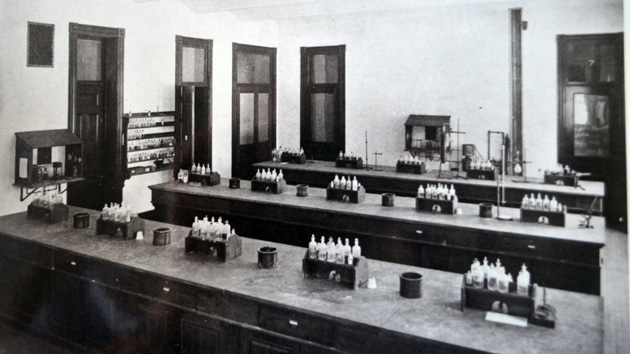
When the University of Rochester launched its chemical engineering program in 1915, tuition was $90 a year, and the curriculum looked nothing like it does today. Freshmen took rhetoric, German or French (used by the most prestigious scientific journals at that time), math, chemistry, drawing, woodshop, foundry, forge, and physical training during an academic year that was split into three terms.

The first class of 10 students was taught by two faculty members, Millard C. Ernsberger, a mechanical engineer and head of applied science, and Victor Chambers, chair of chemistry. President Rush Rhees articulated the goals of the University’s fledgling engineering program as follows: “Graduates from this group would thus be prepared to enter on commercial careers with all the advantage offered for such careers by technical training, coupled with the distinct advantage arising from a more general liberal culture.”
The Move to River Campus

The University of Rochester moved its men's program to River Campus in 1930. When that happened, the Department of Chemical Engineering (CHE) moved into a new three-floor engineering building (now called Gavett Hall), along with mechanical engineering. CHE moved into its current home in Wegmans Hall in June 2017. Laboratories in Gavett Hall have undergone substantial renovations since the early days.
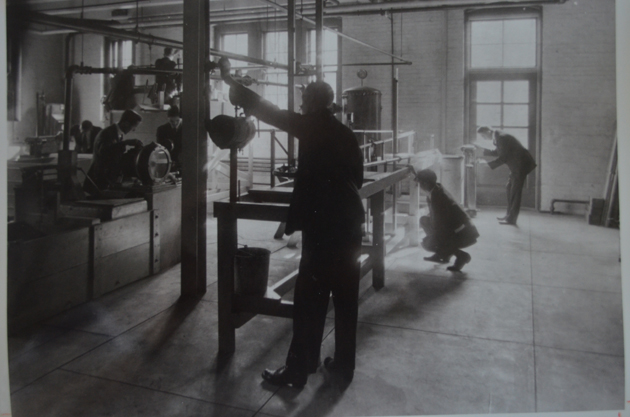
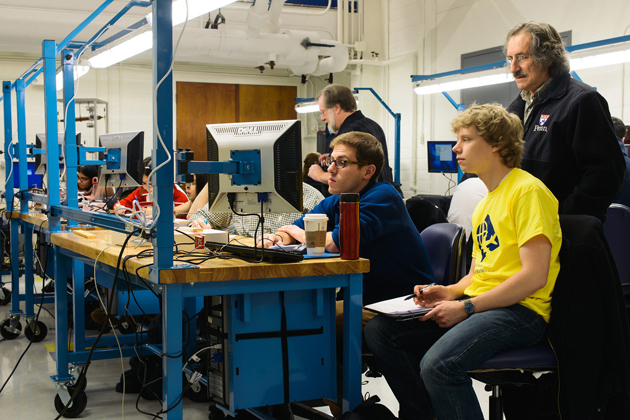
A crisis of accreditation
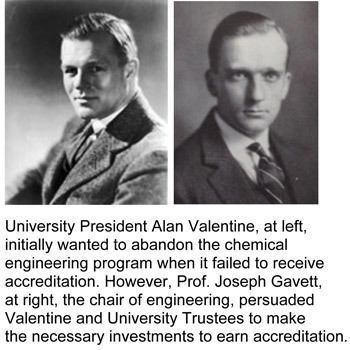
It was “ante up or fold” for chemical engineering at the University of Rochester in 1936. The program had failed to receive accreditation for several reasons: none of the faculty were trained in chemical engineering, there were no unit processes labs, and the curriculum stressed too much chemistry and mechanical engineering, and not enough chemical engineering.
Gardner Brings 'Instant Credibility'
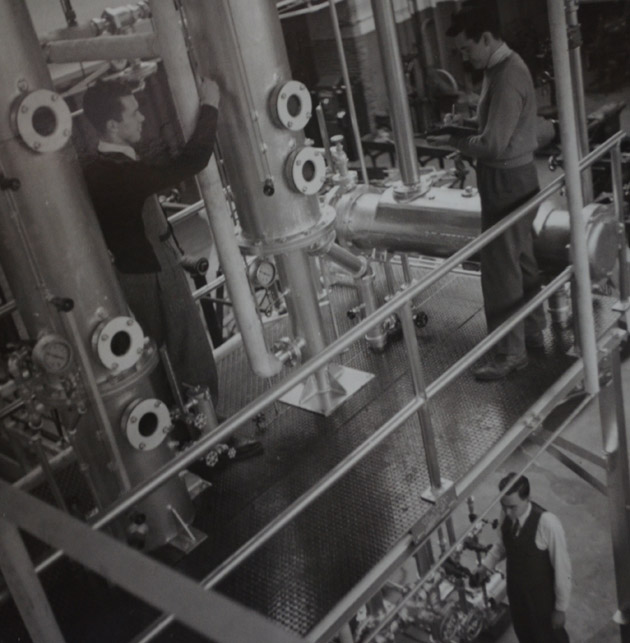
“So quietly that few students and even fewer faculty were aware of it, the University of Rochester today began an expanded program in chemical engineering and set about developing a chemical engineering laboratory in which the ‘unit processes’ of fluid flow, evaporation, crushing and grinding, absorption, and the like can be experimentally studied,” a University news release announced in September 1938.
Gene Su's Legacy
Borelli, now a corporate research fellow with the S&T Division of Corning Inc., recently contacted the Department of Chemical Engineering to help honor the memory of Gene Su. "He was easily the finest gentleman I have ever met... and the word 'gentleman' could not be more appropriate," Borelli wrote. "My career such as it is owes much to my association with Professor Su and the guidance he gave me over the years."
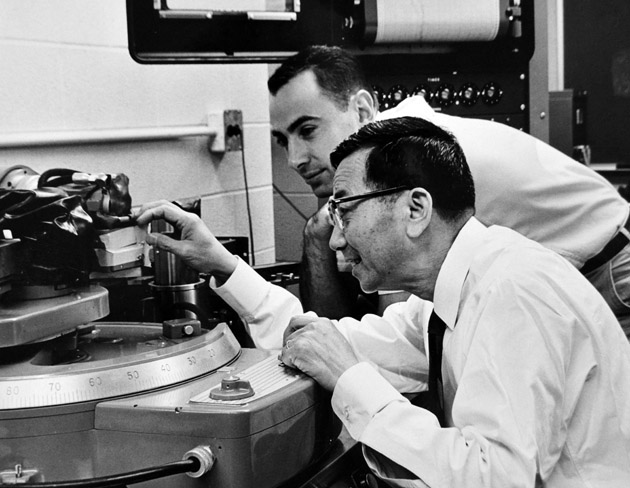
“Gene Su’s quiet manner belied the influence he had at the University of Rochester,” Friedly added.
Thanks to a generous gift by Professor Gouq-Jen Su and his wife Shou-Tsung, the department established in Wegmans Hall the Su Conference Room, which overlooks the Genesee River, and the prestigious Su Distinguished Lecture Series, which is awarded annually to outstanding scholars in chemical engineering.
Coming of Age
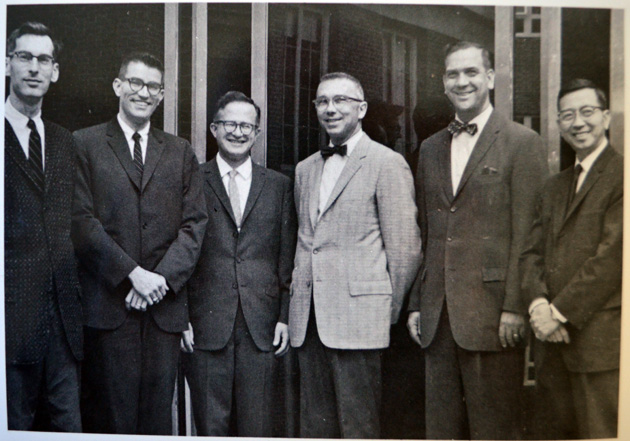
Two men helped the Department of Chemical Engineering come of age after World War II, Gene Su and Shelby Miller, who was head of the department from 1955 to 1967. Miller came to the University of Rochester from the University of Kansas, where he was a professor and department chair; he also had industrial experience at Du Pont after receiving his PhD at Minnesota in 1940.
During Miller’s tenure, faculty size increased from 3 to 12, and he played a key leadership role as the department increased its emphasis on graduate education and research, while maintaining its emphasis on undergraduate teaching.
A department self-assessment in 1967 noted: "In all this the key concept is engineering—not science, essential ingredient that it is—nor engineering science, inseparable organ of engineering that it is—nor economics, code of law to the engineering industry that it is—but engineering, the composite of all these and other components."
The Energy Crisis
The oil crisis of 1979, triggered by the Iranian Revolution, caused long lines to form at American gasoline pumps, just as they had six years earlier. When Friedly took over as chair in 1981, enrollment was at an all-time high in the University’s chemical engineering program. Overworked faculty struggled to keep up with classes so large that close interaction with students could not be maintained.
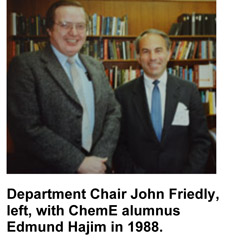
This did not last long. “One of Ronald Reagan’s first acts in the White House was to cancel the synthetic fuels program,” Friedly wrote. “Oil companies that had been using excess profits from rapidly inflating oil prices, coupled with federal funding for synthetic fuels, to sop up all engineers in sight immediately saw the danger signal. Hiring was abruptly halted.”
Bolstering Growth
Eldred Chimowitz remembers all too well the predicament that confronted the Department of Chemical Engineering as the 2003 fall semester drew near. Only four incoming freshmen were enrolled. “We better beat the bushes,” suggested Sandra Willison, the department’s undergraduate coordinator (now department administrator).
Eight years earlier—at a time many other universities faced financial difficulties and budget deficits—University of Rochester President Thomas Jackson announced his 1995 Renaissance Plan to create a leaner, refocused College. This included suspending the PhD program in CHE and three other departments. Though current PhD students were allowed to finish, incoming students were turned away. “We had to find them other schools,” Chimowitz said.
The core CHE faculty shrank from 12 to four. Chimowitz, Jacob Jorné, Shaw Chen and David Wu remained, mentoring a wave of new faculty who were subsequently hired after the suspension was lifted. But it took time for the department to fully recover.

To bolster numbers of incoming freshmen in 2003, the department sent messages to other incoming students in related disciplines urging them to consider chemical engineering, Chimowitz recalled, and managed to build up the incoming freshman class to 12. Willison said the department also began visiting local high schools to recruit students.
By contrast, 63 incoming freshmen expressed an interest in CHE in September 2014, part of an overall enrollment surge in engineering that has seen the Hajim School double its undergraduate enrollment within five years. Were there growing pains? Sure. But Chimowitz said he’d rather deal with those than have an incoming class of only four students. "It was a rough few years, but in the end we emerged stronger."
Why was CHE’s PhD program reinstated? Kevin Parker, who served as dean of the engineering school from 1998 to 2008, cited two factors: 1. Participation of PhD students was required for the research grants ChE faculty were receiving. 2. A renewed PhD program in ChE would also benefit the University’s Materials Science and biomedical engineering programs. “Eventually that argument was received,” Parker said. As a result, the department grew and prospered.
New faculty with industrial experience, such as David Foster and Doug Kelley, “has been absolutely key, especially in the labs,” Chimowitz added. “The students love it, and it’s just transformed the whole program.”
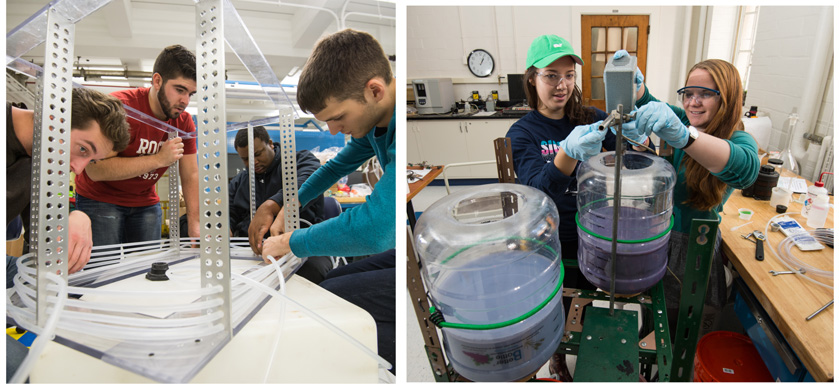
The senior design course is a semester long 4-credit course that uniquely focuses on hands-on projects that mainly come from industries in the region. Companies submit project ideas of interest to their company. Students, working in groups, get to choose a project and work under the supervision of both industry and faculty mentors who hold regular meetings with the students as their work progresses throughout the semester. A final project report is required and used as a basis for evaluating the students’ work. Emphasis is placed on developing practical skills, including building experimental equipment, as well as employing on-line data-acquisition and process-control software when relevant.
Moving Forward
The PhD program of the University of Rochester's Department of Chemical Engineering is now nationally ranked among the top 20, according to the most recent National Academy review of graduate engineering programs. The department provides a vibrant learning and working environment. It is world-renowned for its high-quality, multi-disciplinary research and education through its faculty, staff, and students. Innovative research is supported by funding from federal agencies including the National Science Foundation, Department of Energy, Department of Defense, and National Institutes of Health, in addition to contributions from private foundations and industries.
The department hired several young faculty and focused research on vibrant directions such as:
- Sustainable energy and sustainable process engineering
- Optical, photonic and electronic materials
- Computational driven materials discovery
Two of our faculty authored or co-authored classic chemical engineering textbooks:
- “Introduction to Critical Phenomena in Fluids” by Eldred Chimowitz
- “Fundamentals of Momentum, Heat and Mass Transfer” by James Welty, Gregory L. Rorrer, and David G. Foster (appeared in its 7th edition in 2020 and has already garnered more than 3,300 citations)
Recent Developments
2019
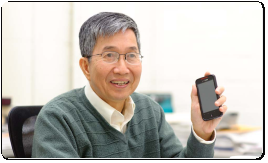
Our faculty are nationally and internationally recognized for their outstanding research and teaching. Emeritus Professor Ching Tang, a member of the National Academy of Engineering, has been inducted into the National Inventors Hall of Fame for pioneering the organic light-emitting diode, or OLED. He was also awarded the NEC 2018 C&C Prize and the 2019 Kyoto Prize for his groundbreaking technological achievements.
Through a generous gift by distinguished chemical engineering alumnus Kwang Yu Wang and his wife Lee Chien, the department established the Kwang-Yu and Lee-Chien Wang Graduate Fellowship to support excellence in Chemical Engineering research for PhD candidates after passing their proposal exam.
In addition, the department created in 2019 the Young Alumni Achievement Award, whose first recipient was Andrew Wunder, class of ’04 (MS ’05), currently the director of operations at Henkel in Lyons, NY.
Professor Andrew White and Professor Wyatt Tenhaeff each received an NSF CAREER award. Each also won the University’s Curtis Award for nontenured faculty teaching. Professor Andrew White is part of an NSF research traineeship program on the topic of augmented reality and virtual reality. Professor Shaw Chen and Professor Mitch Anthamatten, chair of the department, won Technology Seed Funding by the University of Rochester, together with Meadowlark Optics, Inc., to support a major project on glassy liquid-crystal optics in the Center on Advanced Materials for Photonics and Lasers (AMPL).
Our faculty are regularly invited to give talks at national and international conferences and universities. For example, Professor Alex Shestopalov presented at the SPIE Laser Damage Conference and the Hong Kong University of Science and Technology. Professor Marc Porosoff gave talks at the Pittsburgh Catalysis Society Meeting and at the International Pittsburgh Coal Conference. Professor Astrid M. Müller was invited to share her work at the Physics of Quantum Electronics Conference, and she was selected for a Young Investigator Highlight talk at the 2019 Gordon Research Conference on Nanomaterials for Energy.
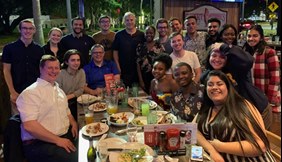
In November 2019, a 25-member delegation from our department attended the AIChE National Student Conference in Orlando, FL. The conference was a great opportunity for our undergraduate students to present their research, meet peers from other institutions, talk to graduate school and industry recruiters, explore the breadth of research being done in the field, and hone their networking skills.
Three undergraduate students won poster awards:
- Joyceline Marealle ’20 (Müller group) placed first in the Materials Science and Engineering group 6 for “An Ultrafast Rechargeable Aluminum Battery”
- Zach Oliver ’20 won second place in the Materials Engineering and Sciences group two for his poster titled “CFD and PBM Modeling of Particle Aggregation in Mixing Tanks” (a project he has been working on since last summer with Riley Flower ’20, mentored by Professor David Foster)
- Daniel Krajovic (Anthamatten group) took third place for his poster “Recyclable Shape-Memory Elastomers”
2020
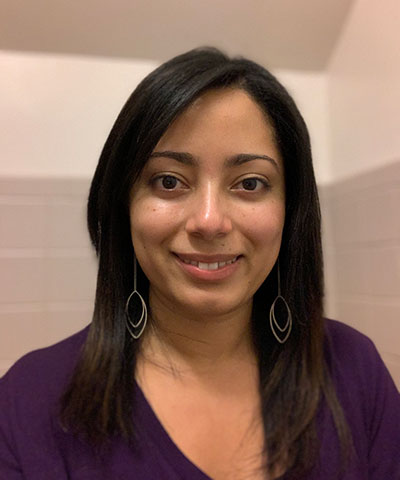 Melodie Lawton joined our department in January 2020 as a new instructional-track assistant professor to direct the undergraduate labs. Before coming to the University of Rochester, she worked as a process engineer for Bausch & Lomb in Rochester, and she served as a visiting assistant professor at Bucknell University, where last year’s senior class chose her as the faculty member “most likely to boost your confidence.”
Melodie Lawton joined our department in January 2020 as a new instructional-track assistant professor to direct the undergraduate labs. Before coming to the University of Rochester, she worked as a process engineer for Bausch & Lomb in Rochester, and she served as a visiting assistant professor at Bucknell University, where last year’s senior class chose her as the faculty member “most likely to boost your confidence.”
Unique unforeseeable challenges emerged in spring 2020 due to the world-wide spread of the novel coronavirus. As the pandemic hit the U.S. and cases started mounting everywhere in the country, the University of Rochester responded by extending spring break by two weeks, during which all faculty transitioned their teaching to online courses. To ensure social distancing and curb the person-to-person spread, students did not return to campus for the remainder of the academic year. Additionally, all research labs deemed noncritical for COVID-19 research were shut down on March 18, 2020, and everyone was sent to work from home. These closings posed particular challenges for our lab classes. Professor Melodie Lawton developed and implemented innovative industry models to maintain social distancing and at the same time provide relevant learning experiences in the unit-operation laboratory and for the senior design projects. She had our seniors turn their half-way completed projects into technology transfer files, which they presented via Zoom towards the end of the semester.
The class of 2020 celebrated their achievements in an online commencement. Our graduates have entered into further education at graduate schools, including UC Berkeley, Princeton, Penn State, the University of Rochester, University of Pittsburgh, University of Minnesota, and University of Wisconsin, to name a few; or they chose to work in companies, such as Javlyn Process Systems, Johnson Matthey Inc., Huntington Ingalls Industries, etc. Chemical engineering major Anna Weldy won a prestigious Fulbright Scholarship to conduct research on improving oral drug delivery of insulin at the University of Copenhagen in Denmark. A member of Phi Beta Kappa, she has been a research assistant in Professor David Foster’s lab since 2017. Kappa, she has been a research assistant in Professor David Foster’s lab since 2017.
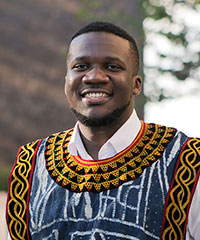 Beauclaire Mbanya Jr. has been named a 2021 Global Rhodes Scholar—one of only two students selected worldwide among candidates from any country not in an existing Rhodes jurisdiction or competition zone. The Cameroon native is the third University student or alumnus to receive a Rhodes Scholarship, and the first in 56 years. Mbanya graduated in May with a BS in chemical engineering. An alumnus of the African Leadership Academy, he previously was awarded a Davis Projects for Peace grant and selected as a 2020 Schwarzman Scholar. He has been completing his Schwarzman program—a master’s degree in global affairs from China’s Tsinghua University—remotely from the home of his host family in the Rochester suburb of Pittsford. He begins his two-year, all-expenses paid graduate program, the master of science by research in engineering science degree program at Oxford University in fall 2021.
Beauclaire Mbanya Jr. has been named a 2021 Global Rhodes Scholar—one of only two students selected worldwide among candidates from any country not in an existing Rhodes jurisdiction or competition zone. The Cameroon native is the third University student or alumnus to receive a Rhodes Scholarship, and the first in 56 years. Mbanya graduated in May with a BS in chemical engineering. An alumnus of the African Leadership Academy, he previously was awarded a Davis Projects for Peace grant and selected as a 2020 Schwarzman Scholar. He has been completing his Schwarzman program—a master’s degree in global affairs from China’s Tsinghua University—remotely from the home of his host family in the Rochester suburb of Pittsford. He begins his two-year, all-expenses paid graduate program, the master of science by research in engineering science degree program at Oxford University in fall 2021.
Over the summer, the University of Rochester and our department developed new COVID-19 guidelines for reopening, and research is strong. Professor Marc Porosoff's group demonstrated the potential of a potassium-promoted molybdenum carbide catalyst for use on an industrial scale, with the aim to convert the carbon dioxide in seawater into fuel for Navy ships. Professor Andrew White received together with Professor Gourab Ghoshal, associate professor of physics, mathematics and computer science, a grant from the National Science Foundation to create a mathematical model that simulates the spread of COVID-19 to help policymakers make informed decisions regarding reopening plans. Professor Andrew White also received a grant from the National Institute of Health for his project titled “Learning to learn in structural biology with deep neural networks.” The goal of this research is to develop methods that allow meta-learning in structural biology to train new deep learning models on tasks where data are scarce, with limited computation resources.
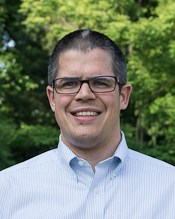 Wyatt Tenhaeff was promoted to Associate Professor of Chemical Engineering with tenure in 2020, highlighting his significant accomplishments in scholarship, teaching, and service at the University of Rochester. In addition to an NSF CAREER award, he received an R&D 100 Award, dubbed the “Oscars of Invention,” for his breakthrough work on improving the safety of automotive lithium-ion batteries.
Wyatt Tenhaeff was promoted to Associate Professor of Chemical Engineering with tenure in 2020, highlighting his significant accomplishments in scholarship, teaching, and service at the University of Rochester. In addition to an NSF CAREER award, he received an R&D 100 Award, dubbed the “Oscars of Invention,” for his breakthrough work on improving the safety of automotive lithium-ion batteries.
The young alumni achievement award winner 2020 was Genevieve McSpadden, class of ’13 (MS ’14). The award is given to recognize young alumni of the Department of Chemical Engineering of the University of Rochester, improve alumni engagement and provide inspiration for current and future students.
The department held its first annual panel on “Equity and Inclusion in Chemical Engineering”. Panelists were our alumni Mary Fromm, Vice President at Xerox Corporation, John Ofori, Director of New Ventures at US Pharmacopeia, Chantel Gaudet, Process Control Engineer at ExxonMobil, and Genevieve McSpaden, Global Marketing Leader at 3M; we were also honored to have John Barker, Senior Associate Dean of the Faculty for Arts, Science & Engineering at the University of Rochester. Our panelists shared their experiences how the University of Rochester, and particularly the Department of Chemical Engineering, helped them become successful professionals, predicated on diversity, equity and inclusion. The panel discussion was virtual because COVID restrictions; nevertheless, student attendance was strong throughout.
The Department of Chemical Engineering stands in solidarity with the University of Rochester in its commitment to diversity, equity, and inclusion. All faculty and staff complete annual implicit bias training and in 2020 we formed a student focus group to assess our department on how well we are promoting equity. Our graduate committee continues to foster diversity in our student population, our enrolled undergraduate students were comprised of 46% females in fall 2020, which is way above the national average, and we hold an annual panel on “Equity and Inclusion in Chemical Engineering.” Our actions aim at keeping an open dialogue about social justice, and we strive to do ever better in the spirit of Meliora.
2021
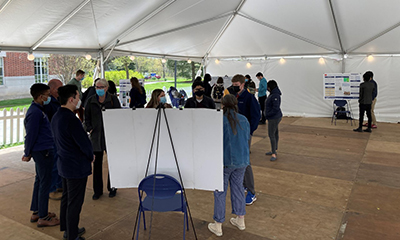
The spring semester was still held remotely because of COVID-19. Nevertheless, learning and research were lively. Senior design students rotated presence in the laboratory to satisfy social distancing requirements and were able to present their results in an outdoor poster session in May. Professor Melodie Lawton, lab instructors and staff implemented webcams and tablets at each undergraduate experiment station, which led to constant communication among student team members and instructors, all while following social-distancing protocols. Careful planning by faculty and staff, together with the resilience and resourcefulness of our students enabled a successful learning environment.
Commencement was in-person, albeit without visitors, and the department held an additional virtual graduation ceremony to celebrate our graduating class of 2021. In fall, the university returned to full in-person instruction, which was much appreciated by faculty and students alike.
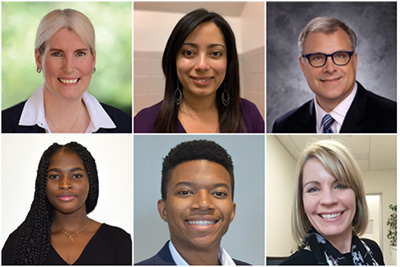
In spring, we formed a committee on diversity, equity, and inclusion (DEI), with the aim to foster an environment in the department that is respectful, encouraging, and open-minded. Current DEI committee members are Astrid Müller (chair), Melodie Lawton, David Foster, Omolade Fasusi, Brian Yegela and Jen Condit. We identified specific goals to promote DEI in our department, provide resources, and hold events. We also established a new award to annually recognize one of our outstanding alumni for their leadership role in equity and inclusion in chemical engineering.
Our annual Panel on Equity and Inclusion in Chemical Engineering was held on October 29 via zoom. Panelists were John Ofori, Senior Director, New Ventures at US Pharmacopeia, who received the 2021 DEI Award in recognition of his exceptional leadership in advancing diversity, equity, and inclusion in chemical engineering. Other panelists were Ali Anoff, Director & Assistant General Counsel – Patents at Procter & Gamble, Sean Rodrigues, Senior Scientist at Toyota North America, Maghesree Chakraborty, RET Design Data Scientist at Intel, and Bianca Dyer, PhD student at Princeton University. Around fifty people attended throughout, and lively discussions ensued; clearly, the communication gap must be broken down, and long-term enthusiasm and commitments are needed to improve diversity, equity, and inclusion in chemical engineering.
Research in our department continues to be strong. We established two new graduate student prizes, one for outstanding MS students and another for PhD candidates. The outstanding doctoral research prize is awarded annually to PhD candidates whose research exhibits a great degree of originality and impact to the research community.
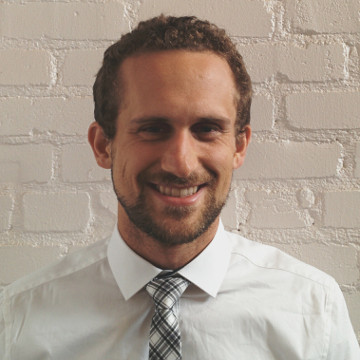
Andrew White was promoted to Associate Professor of Chemical Engineering with tenure in 2021. His outstanding contributions include the development of novel AI methods in molecular design, advances in combining molecular simulation and experimental measurements, and theory of multiscale modeling. White has also established excellent mentorship and teaching programs, including innovating in the use of augmented reality in courses, open-access educational resources, and pioneering programming in undergraduate education.
During the summer, we were able to welcome undergraduate students back into our laboratories. Our department had a record number of twelve Eisenberg fellows and three undergraduate summer research students funded by other programs. Undergraduate researchers were advised by five faculty members and worked on a wide range of modern research challenges, from creating high surface area carbon supports for use in nanoparticle electrocatalysis and biosensing applications, to improving lithium-ion batteries, using computational fluid dynamics simulations to predict stroke or to optimize industrial mixing, to the preparation of carbon dioxide hydrogenation catalysts, and the design and synthesis of functional polymer coatings for chemical sensors. Students showcased their research at an in-person poster session in November 2021. During this Eisenberg poster session, we also presented the 2021 young alumni achievement award to Chad Hunter ’12.
Some undergraduates ventured across the country for summer research. For example, Milenia Rojas (Müller group) spent her summer at Caltech as a WAVE student to research materials for electrocatalytic carbon dioxide reduction in Professor Jonas Peters’ lab. Akram Ismail (Foster group) joined the MIT Summer Research Program to investigate electron transfer kinetics for flow battery electrodes in Professor Fikile Brushett’s lab.
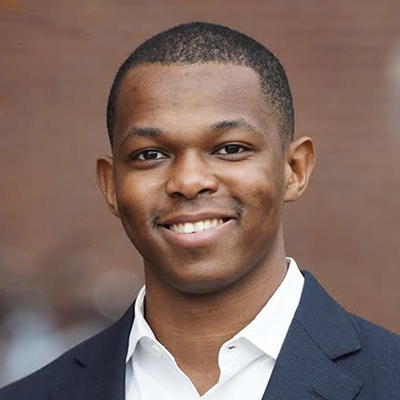
Kudzai Mbinda ’22, a chemical engineering major from Harare, Zimbabwe, has been selected as a Rhodes Scholar. He has been chosen among 100 students worldwide to begin graduate studies at the University of Oxford in Great Britain in fall 2022. Mbinda plans to pursue a master’s degree in energy systems at Oxford, followed by an MBA. He is committed to social impact leadership in his home country, at the intersection of engineering and business. This marks the second consecutive year a University of Rochester student has been awarded this prestigious scholarship. Beauclaire Mbanya Jr. ’20 of Cameroon, also a chemical engineering major, was selected in November 2020. Mbinda is the first Rochester student to earn a Rhodes while still an undergraduate since J. Timothy Londergan ’65, now a professor emeritus of physics at Indiana University–Bloomington.
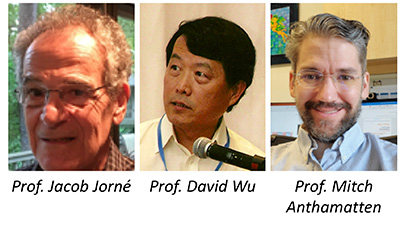 After many years of impactful research, teaching and service to the department, Professors Jacob Jorné and David Wu became emeriti in summer 2021. Professor Mitch Anthamatten began his second term as department chair.
After many years of impactful research, teaching and service to the department, Professors Jacob Jorné and David Wu became emeriti in summer 2021. Professor Mitch Anthamatten began his second term as department chair.
Our staff and faculty received notable honorific awards, as well as research and course development grants. Jen Condit, undergraduate program administrator, was one of nine winners of the University of Rochester Gwennie Awards, which honors partners who support career education efforts for students and alumni. Professor Astrid Müller received an ACS-PRF grant to work on selective electrooxidations of petroleum products with laser-made nanocatalysts. Professor Marc Porosoff secured funding from the Office of Naval Research to investigate selective CO hydrogenation over bimetallic nanoparticles. He also won a Wadsworth C. Sykes Engineering Faculty Award from the University of Rochester to support the development of a new course. Professor Mitch Anthamatten, working with Professor Shaw Chen, got an extension to their UR Ventures, Technology Development Fund project to develop optical materials for night vision applications. Professor Dave Foster received funding from a University of Rochester Health Sciences Center for Computational Innovation (HSCCI) Internal RFA to support work on carotid artery simulations to predict stroke. His research is also supported by three industrial collaborators, Xerox, SPX Flow and Zymtronix, for various computational fluid dynamics projects, as well as the Department of Urology to study modeling of flow in the kidneys.
Despite the travel restrictions brought about by the COVID-19 pandemic, our faculty gave many invited talks at conferences and universities. Professor Astrid Müller was invited to virtually share her research at the Spring 2021 Electrochemical Society Meeting, the 5th International Conference on Catalysis and Chemical Engineering, the E-Meeting on Catalysis and Energy, and the 2021 Middle Atlantic Regional Meeting of the American Chemical Society. Professor Marc Porosoff gave an invited talk at University of Pittsburgh in the Department of Chemical and Petroleum Engineering. Professor Mitch Anthamatten gave a seminar at Syracuse University’s Biomedical and Chemical Engineering Department. Professor Andrew White presented his work at remote invited talks at Carnegie Mellon University in Chemical Engineering, University of Copenhagen in Biology, the Max-Planck Institute for Polymer Research in Mainz, IBM Research Zürich, Northern Arizona University in Chemistry, Arizona State University in Physics, and the International Molecular Workshop on Nanotechnology at Osaka University.
Our faculty continued to be active in service to the community. Professor Astrid Müller spearheaded the modernization and updating of our department website. Professor Wyatt Tenhaeff co-organized a Symposium on Advanced Atomic Layer Deposition and Chemical Vapor Deposition Techniques and Applications at the 2021 MRS Fall Meeting and Exhibit. Professor Astrid Müller organized a symposium on New Methods in Nanocatalyst Development at the Fall 2021 American Chemical Society National Meeting in Atlanta, GA, where she went in-person and also was invited to give a talk.
A record number of 26 undergraduate students from our department attended the 2021 AIChE Annual Student Conference in Boston to present their research, meet peers from other institutions, interact with graduate school and industry recruiters, and build professional networks. Two undergraduate students won poster awards. Kareem Abdelmaqsoud (White group) placed first in Computing, Simulation and Process Control III for a poster on work he did as a summer REU student with Professor Dion Vlachos at the University of Delaware; he also won an overall award of the Computing and Systems Technology Division. Jeremy Rivkin (Tenhaeff group) won first prize in the Materials Engineering and Sciences Division V for research on increasing the refractive index of polymer thin films for anti-reflective coating applications.
The University of Rochester Department of Chemical Engineering was well represented at the 2021 AIChE Annual Meeting in Boston.
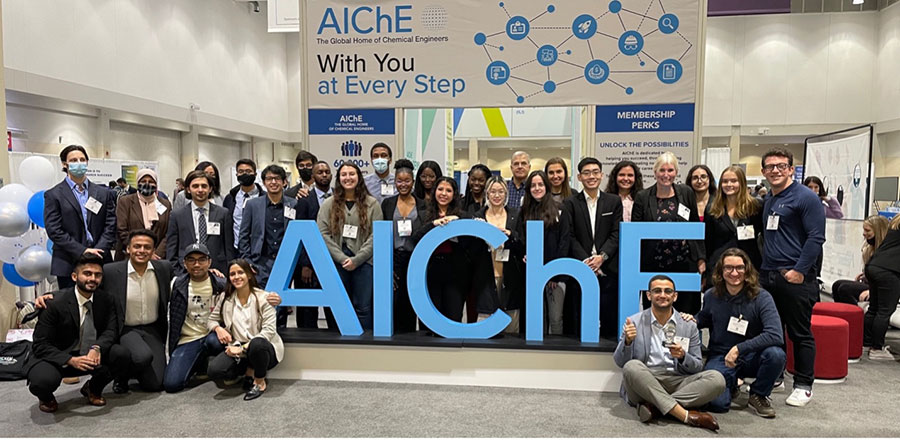
In addition to our undergraduate students, six faculty members and six graduate students went to the 2021 AIChE Annual Meeting to share exciting research and meet with colleagues, for example at the reception that our department held for alumni and friends. Professor Marc Porosoff chaired a session on carbon dioxide upgrading. Professor Andrew White chaired two sessions in the special session on data science and gave an invited talk on multiscale modeling. Professor Astrid Müller chaired a session on Electrocatalysis and Photoelectrocatalysis and gave a talk on laser-made nanomaterials for electrocatalysis.
Our faculty continue to make patentable inventions. Professor Matt Yates is the lead inventor on a patent application from the University of Rochester on a class of silicone polymers discovered to make cellulosic substrates (paper, cotton cloth, and wood) hydrophobic. Professor Ben Miller at the University of Rochester Medical Center is a co-inventor. This ongoing collaborative research on using related polymeric materials in chemical and biochemical sensors is funded by the Department of Defense. Professor Astrid Müller is the lead inventor on a patent application from the University of Rochester on a gravity-driven, failsafe laser beam termination device; our department's staff member Jeff Lefler is a co-inventor. Professor Astrid Müller also filed a disclosure with UR Ventures on imparting long-lasting hydrophilicity to carbon fiber paper without damaging carbon fibers or their architectures; co-inventors are her graduate students Madeleine Wilsey and Connor Cox, as well as her undergraduate students Kendra Watson, Omolade Fasusi, and Brian Yegela.
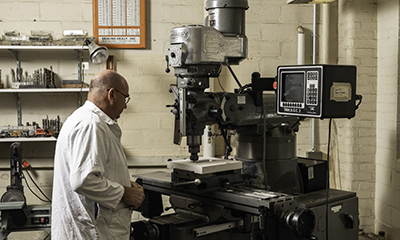
We established a departmental machine shop for advanced fabrication of one-of-a-kind critical-tolerance parts and assemblies, repair, and precision tool development, made possible by the acquisition of a CNC mill and engine lathe by Professor Astrid Müller. Support for student and research labs includes the design and prototyping of specialized parts and equipment, machining of all types of alloy materials and ceramics, and welding of aluminum and stainless and alloy steels, importantly with quick turn-around.
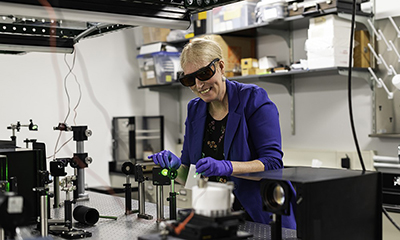
Many faculty used the disruptions the COVID-19 pandemic had on normal laboratory operations to compose manuscripts. Professor Marc Porosoff published three articles, including one in Chem. Professor Andrew White had ten papers or preprints appear this year, including an article Chemical Science. Based on his exceptional scholarship he has been selected to be a keynote speaker at AAAI in the "AI to accelerate science and engineering" workshop in 2022; AAAI is one of the top-three ranked conferences in computer science. Professor Matt Yates published an open-source hardware design for a general-purpose laboratory potentiostat with one of his undergraduate students. Professor Astrid Müller published a review on selective CO2 reduction towards a single upgraded product using multi-elemental copper-free electrocatalysts, which was selected as Editor's Choice. Additionally, she and her graduate students reviewed the state-of-the-art of pulsed laser in liquids made nanocatalysts for catalysis, which appeared in Chemical Reviews. This comprehensive, open access review cites more than 580 reports and attracted much interest, garnering more than 1,500 downloads in the first month after publication and ranking in the in the top 5% of all research outputs scored by Altmetric. Professor Müller's work on how pulsed lasers in liquids speed up the hunt for effective catalysts was highlighted in the University of Rochester News Center and in a YouTube video. Her research also appeared in multiple press releases, including Science Daily, Photonics.com, Phys.org, Mirage News, NanoWerk, Tribology and Lubrication Technology, Vacuum Technology and Coating, and the Rochester Engineer, where her work became the cover story.
2022
The AIChE Catalysis & Reaction Engineering Division highlighted Prof. Astrid Müller and her work for #WomensHistoryMonth.
Associate Professor Andrew White was named the 2021 Kate Gleason Young Engineer of the Year by the Rochester Engineering Society. He is an outstanding researcher and teacher, widely recognized as a leader in artificial-intelligence-driven materials design. His service extends beyond the lab and classroom. He helped organize data science in chemical engineering technical sessions for annual meetings of the American Institute of Chemical Engineers for five years. He is a reviewer for 25 peer-reviewed journals. And his research group hosts Rochester City School District students during the summer to teach them thermodynamics in virtual reality.
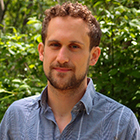
Andrew White, Professor
Department administrator Sandra Willison won the August 2022 ACE Award. This award is given to staff who are integral to making the University "Ever Better". Sandra, who has been with the department for 20 years, has made a lasting impact with her hard work and dedication.

Sandra Willison, Administrato
Professor Marc Porosoff has been named a Fellow for the Scialog Initiative, Negative Emission Science (NES). Scialog: NES is cosponsored by the Alfred P. Sloan Foundation and Research Corporation for Science Advancement (RCSA), with additional support from the Climate Pathfinders Foundation, the ClimateWorks Foundation, and the Thistledown Foundation.
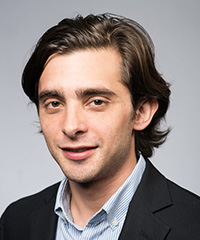
Professor Marc Porosoff
The department hired Assistant Professor Allison J. Lopatkin, who specializes in microbial engineering, to start at UR in July 2023 when her new lab is renovated.

Professor Allison Lopatkin
Our undergraduate students thrive being fully instructed in-person. More than 70% of the 2022 BS graduates had accepted an employment offer at the time of graduation or were entering graduate programs. For example, Milenia Rojas, who did research on clean energy technologies in Prof. Müller’s group and who gave an inspiring speech at graduation to her classmates, won an EDGE Fellowship to pursue a PhD in chemical engineering at Stanford University. Honored as Outstanding Students were Andrew Rojnuckarin ‘23 and Danielle Getz ‘23. Andrew does research on fluid dynamics in Prof. Foster’s group and is the 2022 recipient of the Department of Chemical Engineering’s Donald F. Othmer Sophomore Academic Excellence Award and the department’s Albert K. Ackoff Award for academic achievement as a junior. Danielle Getz is a Grand Challenges Scholar, who does research on carbon dioxide hydrogenation in Prof. Porosoff’s lab. Chemical engineering senior Levi Sunday-Lefkowitz was awarded the Donald M. Barnard Prize on the basis of personal qualification and achievement.
Abby Zabrodsky (BS ‘12; MBA ‘19 from the Simon Business School Executive MBA program), Global Platform Manager, Global Markets R&D and Innovation at Rich Products Corporation, won our department’s 2022 Young Alumni Achievement Award.
Abby Zabrodsky.
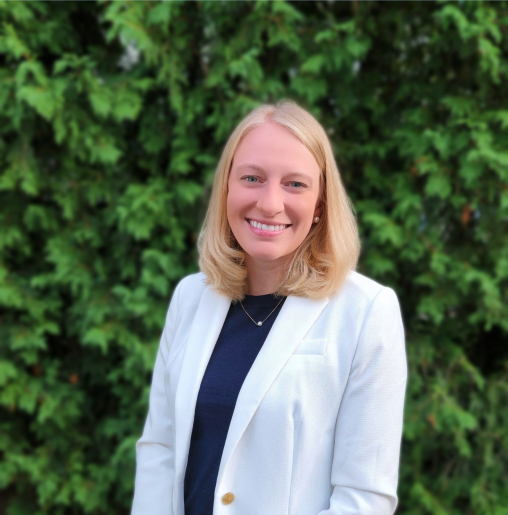
Abby has been distinguishing herself as a passionate volunteer at UR and beyond: Currently, she is a member of the Alumni Board, a co-chair of the global Women’s Network personal and professional development committee, a co-chair of the 2022 Volunteers in Partnership Conference, a mentor in The Meliora Collective mentoring program, a reunion volunteer, and a member of the George Eastman Circle. Abby previously served on the Young Alumni Council. Abby and her father, John Zabrodsky ‘82, chemical engineering, are the recipients of the University’s 2022 John N. Wilder Award. She also received a 2022 Gwennie Award for Alumni Partnership from the Gwen M.Greene Career Center.
Dr. Parinaz Esbah, a postdoctoral associate in chemical engineering, won the Award for Interdisciplinary Research at the recent Steadman Family Postdoctoral Associate Prize in Interdisciplinary Research. Parinaz, who works with Prof. Wyatt Tenhaeff’s research group, was recognized for research that represents a unique and impactful synthesis of theory/experiment and methodology from multiple disciplines of study. Her presentation was entitled “Surface science and its application to biomedical and optical coatings.”

Our department’s annual Panel on Equity and Inclusion in Chemical Engineering will be held on November 4 via zoom. Panelists are Sean Rodrigues, Senior Scientist at Toyota North America, who received the 2022 DEI Award in recognition of his exceptional leadership in advancing diversity, equity, and inclusion in chemical engineering. Other panelists are Madeleine Laitz, Consultant at Bain & Company, John Ofori, Senior Director, New Ventures at US Pharmacopeia, Omolade Fasusi, Gas & Power Analyst at Bloomberg NEF, and Milenia Rojas, PhD student at Stanford University.
